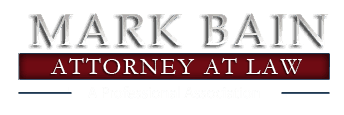GUARDIANSHIP
A guardianship is a legal relationship created when a person or institution is named in a will or assigned by the court to take care of minor children, incompetent adults, or seniors.
Guardianships are commonly used for:
Minors who inherit large amounts of property or money or if their parents are either deceased or unable to take care of them.
Seniors who become unable to manage their affairs late in life.
The Law Offices of Mark Bain, P.A., can help you with the entire process of selecting and setting up guardianship. Our services include, but are not limited to:
Petition the court for the appointment of a guardian
Handle the incapacity hearing
Execute an inventory of the Ward’s assets
Manage assets for the ward
Prepare initial and annual accounting
File tax returns
Establish a monthly budget
Assist with finding a residential setting for the Ward
Ensure the Guardian carries out their duties and responsibilities
Capacity/Incapacity Proceedings
The first step in most guardianship matters is determining whether the alleged incapacitated person does, in fact, lack mental capacity. If the Court decides that the alleged incapacitated person does lack mental capacity, a guardian will need to be appointed.
Enforcement Of Resident Rights
Florida law provides a full guardian can decide where the individual lives, and is responsible for arranging for the care, comfort, and maintenance of the individual. The guardian must take care of the individual’s personal property, and if a conservator is not appointed, has power to handle income and assets. As we know, federal and state law provides an extensive list of rights for residents of nursing homes.
Federal law provides if a resident has a guardian, the resident’s rights are exercised by the guardian. If the guardianship includes the power to make medical decisions, it is the guardian, and not the resident, who authorizes or refuses treatment. Although a resident ordinarily has the right to leave the care of the nursing home and return home, a guardian can pre-empt that right.
Some important rights a resident always retains:
Freedom of speech and religion
Freedom from chemical and physical restraints except as medically necessary
Right to complain to the nursing home, Bureau of Health Systems, and the ombudsman program about any care or treatment issue
Right to request the Probate Court to terminate guardianship, limit the guardian’s powers, or appoint a different guardian
Right to hire a lawyer
Guardian And Litems
Thousands of abused and neglected children become the subject of judicial proceedings each year. The Guardian Ad Litem is a representative for the child before the Court, social service agencies, and the community. A Guardian Ad Litem may be a volunteer who has been trained and certified by the State of Florida Guardian Ad Litem Program or an attorney who is a member in good standing with The Florida Bar. Guardian Ad Litem responsibilities include, but are not limited to, monitoring the child’s case to insure proper services are received and reporting information to assist the Court in determining the best interests of the child.
Minors And Guardianships
Guardianships are filed for minors when the minor child has inherited or received money or property in excess of $15,000. In this type of case a guardian of the property is all that is needed if the minor child’s parents are living. If a minor child’s parents are deceased, a guardianship of the person may also be required.
